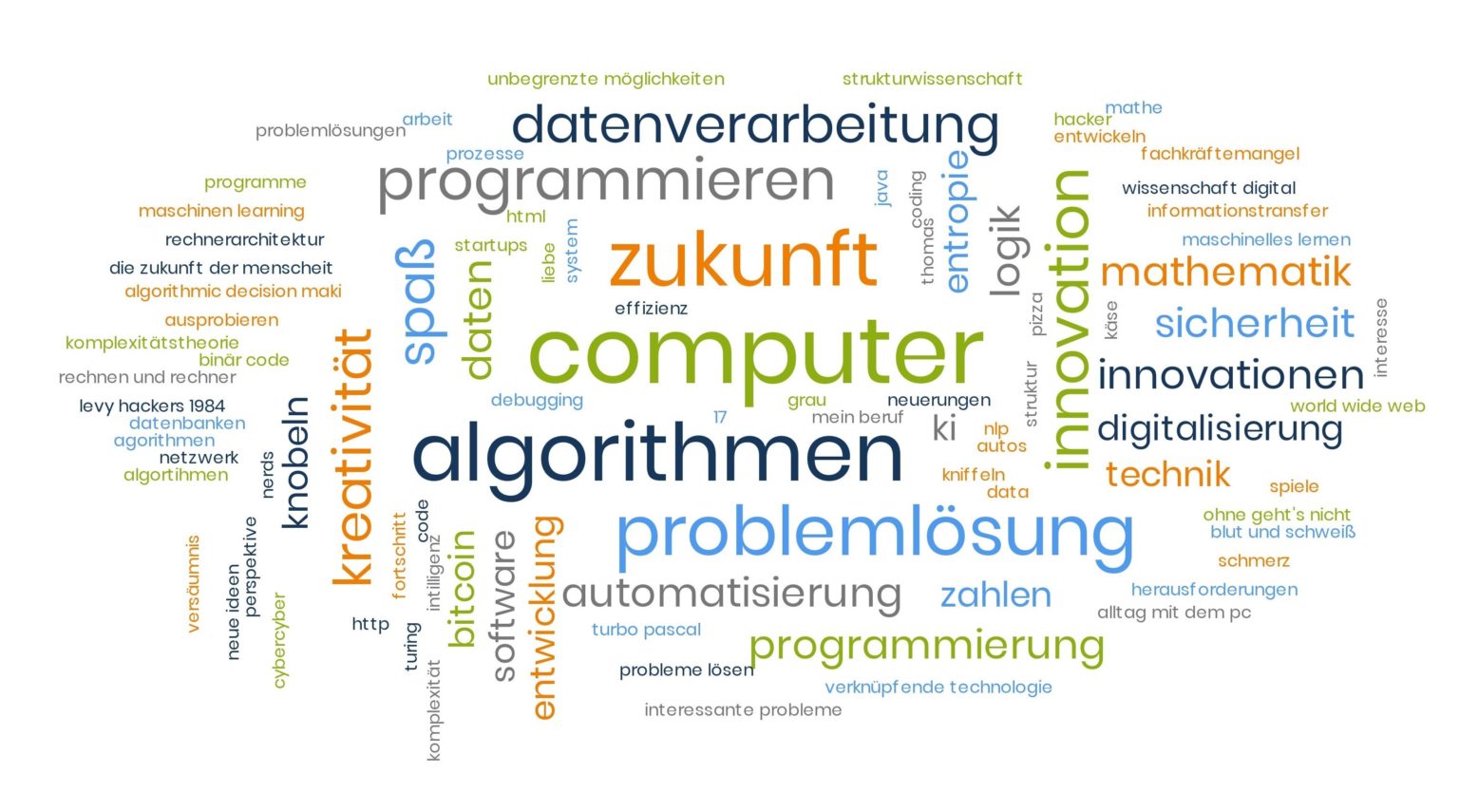Computer Science Day
Seien Sie dabei!
Gain a better insight into some of the faculty’s research focuses through exciting short lectures, discover interesting intersections with your area of interest and network within your subject and beyond. After the lectures, we would like to encourage exchange in a relaxed, virtual get-together.
We ask you to register.
If you register by February 11, 2022, registered participants will receive a small surprise package for the event (while stocks last). Those who decide at short notice can also take part after the registration period has ended, but we can no longer guarantee that the package will be sent.

Welcome and introduction of the new Faculty of Computer Science

The year 2021 held a very special milestone in store for Bochum’s computer science: The Center of Computer Science, the Horst Görtz Institute for IT Security and the Institut für Neuroinformatik merged to form the Faculty of Computer Science.
Alex May, Professor of Cryptology and IT Security and Founding Dean of the 21st RUB Faculty welcomes you to the 2nd Day of Computer Science and briefly introduces the new faculty.
Our speaker
Towards Secure and Scalable Blockchains
Prof. Dr. Ghassan Karame

The blockchain technology is rapidly gaining grounds as a key technology, especially in the financial and supply chain management sectors. In spite of its wide adoption, experience with existing blockchain deployments reveals that there are still many challenges that should have been overcome prior to any large scale deployment.
In this talk, we will overview a number of those challenges pertaining to the security of existing blockchains—effectively capturing almost 10 years of research in this area. Moreover, we will outline potential research directions to overcome those challenges.
Developer-Centered Security
Prof. Dr. Alena Naiakshina

Like end users, many software developers are not usually security experts and so also struggle with usability and security issues. In fact, programming security mistakes made by software developers can threaten millions of end users’ data. To deepen insights into developers’ security behavior around the security-critical task of user-password storage, Naiakshina et al. conducted laboratory, online, and field studies with computer science students, freelancers, and professional developers from various companies. Besides investigating software developers’ processes and security practices while storing user passwords in databases, they tested the usability of different application programming interfaces (APIs) and explored the methodological implications of several security-study parameters, including deception task design, sample variety, and the comparison of qualitative with quantitative research approaches.
The Curious Case of Fuzzing for Automated Software Testing
Dr. Marcel Böhme

Fuzzing is an automated software testing technique and has become the first line of defense against exploitable software vulnerabilities. When you run a fuzzer on your program, hopefully it does not find any bugs. But what does it really say? Is your program perfectly correct and free of bugs? Probably not. Is your fuzzer effective at finding bugs? How do we even measure the effectiveness of a fuzzer in the absence of bugs? In this talk, we’ll go through some interesting and counter-intuitive recent results in fuzzing, and uncover fundamental limitations of existing approaches.
Modelling episodic memory
Prof. Dr. Sen Cheng

Why can we remember a two-hour film but not all three items on a shopping list? To answer these and other questions about episodic memory, we are investigating the underlying neural and cognitive mechanisms with an interdisciplinary modelling approach. Our aim is to combine neuroscientific, psychological, computational and philosophical aspects at different levels of description in a coherent explanatory framework. At an abstract level, we investigate the function of episodic memory using reinforcement learning. To explain the properties of episodic memory, we developed the scenario construction model. Finally, we have developed the CRISP theory, which describes memory storage at the neuronal level in the hippocampus.
Bochum: Auf dem Weg zum IT-Hotspot
Susanne Kersten

Universities, university associations, research institutions such as the Max Planck Institute for Security and Privacy or the Center of Advanced Internet Studies (CAIS), a lively industry from start-ups to corporations – the city of Bochum is becoming more and more synonymous with a strong ecosystem IT and IT security. Susanne Kersten from Bochum Economic Development gives an insight into the latest developments in the city, which is well on its way to becoming an IT hotspot.
